QuestionHello again,
I picked up my russle puppy 3 days ago and everything is going well with him and my lab exept that he chews on my blankets and bites my hands.... now I know this is normal for a puppy or so I've read but I have never had this problem as my lab was three months old when I got her and was really passive as she was underweight and over all not being well cared for by her breeder. So my questions are.....
What do I do when hes chewing my blankets or biting my hands?
He also chews the socks on my feet.
Also how long does it take russles to reach adult size? will he be a lot bigger in a month or two?
He also chews the socks on my feet.
Thank you for any help in advance.
AnswerYou are lucky if your Lab wasn't a problem chewer at 3 months. Most of them are just getting their adult teeth and the ability to completely destroy anything. As for the JRT puppy, it is a matter of frequent corrections.
A mousetrap is very effective in making a dog leave something alone. Most
dogs will stay away from anywhere they were surprised by a snap. The best
part is that it is not you that is correcting the dog. It works whether you
are around or not. The mousetrap is very patient and is always on task as
long as you reset it.
Better than mousetraps when you aren't around is the crate. Other dogs may
not be as bad as the young Labs I am plagued with. Still your house and dog
will be much safer with the dog in a crate when you are away. The dog may be
happier in its den than loose in the house. It relaxes, it feels safe in its
den. It rests, the body slows down reducing the need for water and relieving
its self. Dogs that have been crated all along do very well. Many of them
will rest in their crates even when the door is open. I think the plastic
ones give the dog more of a safe, enclosed den feeling. They are harder for
dogs to open too. Metal ones can be put in a corner or covered with
something the dog can't pull in and chew. Select
a crate just big enough for the full grown dog to stretch out in.
Leave it some toys. Perhaps a Kong filled with peanut butter. Don't leave
anything in the crate the dog might chew up. It will do fine without even any
bedding. You will come home to a safe dog and a house you can enjoy.
Accidents and damaged possessions are the fault of whoever was watching the puppy. When you are watching it, immediately correct it as soon as it goes for anything except its own toys. In a quiet, but firm voice ''Bad dog, its name drop!''. Gently remove what ever and replace it with one of her toys. Later hold eye contact until the puppy drops it.
A dog that has not been crated since it was little, make take some work.
Start out just putting its toys and treats in the crate. Praise it for going
in. If you have been able to trust it with any bedding, put that in the crate.
Feed it in the crate. This is also an easy way to maintain order at feeding
time for more than one dog.
Young Labs, which I know best, and other puppies tend to very bad about
biting. You see a litter of them, and all the ones that are awake are biting
another one or themselves. I am not even sure they realize that when they are
alone, if they quit biting, they would quit being bitten. At 3 to 4 months
they are getting their adult teeth, and it seems they spend every waking
moment biting or chewing. I maintain a Lab's favorite chew toy is another
Lab. Otherwise they settle for any person they can. They keep hoping to find
one that won't yelp and jerk their hand away, or growl "Bad dog." and clamp
their mouth shut. Then offer a chew toy. They keep trying despite hundreds
of corrections. Another good technique is to quit playing and go away. Be
sure to praise them when they are playing nice and not biting.
You just have to keep on correcting them, hundreds of times, not dozens.
Provide sturdy, safe toys such as Kongs and Nylabones. Avoid things they can
chew pieces off and choke on them. Keep them away from electrical cords.
Crates are essential for most young Labs and other dogs.

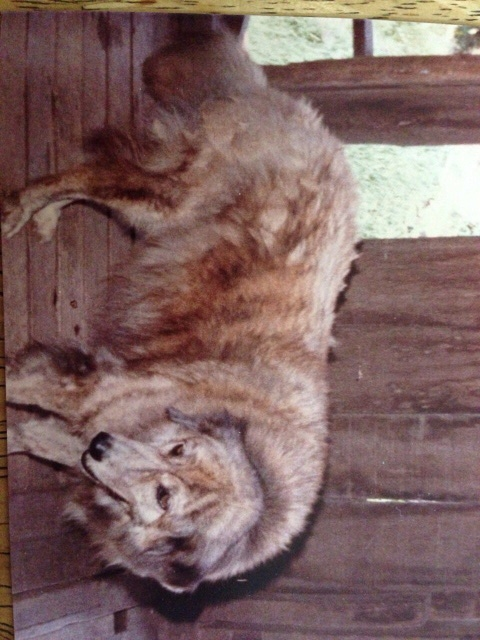 Identifying the breed
Question
Unknown Dog
Greetings Patti, I would li
Identifying the breed
Question
Unknown Dog
Greetings Patti, I would li
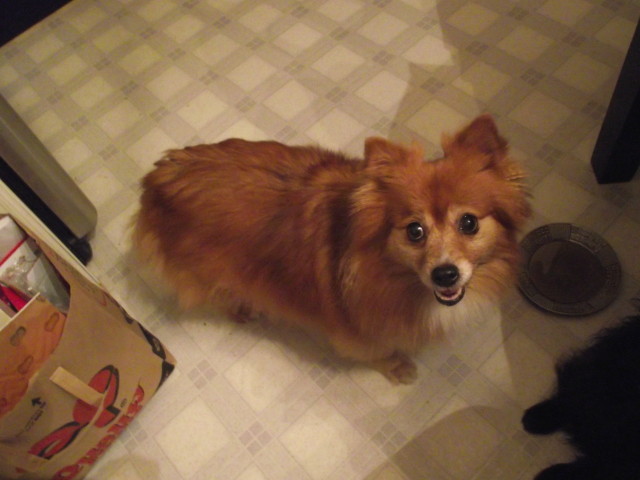 Pomeranian or Pomeranian mix
Question
Brandy my Pomeranian
Hi I have a Dog na
Pomeranian or Pomeranian mix
Question
Brandy my Pomeranian
Hi I have a Dog na
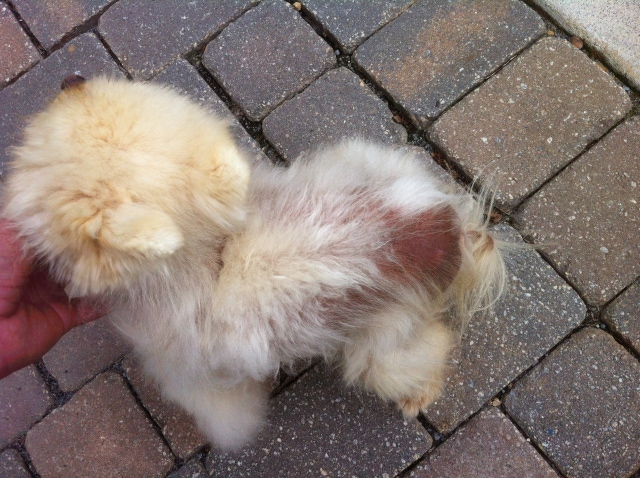 Hair growth stimulation
Question
Hairless Pom
A few years back I cut my
Hair growth stimulation
Question
Hairless Pom
A few years back I cut my
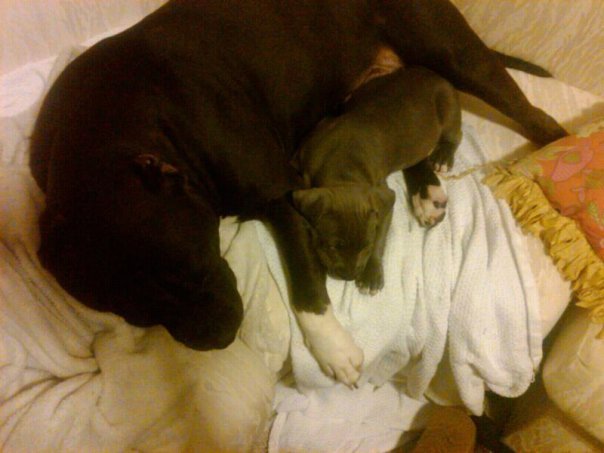 Dog aggression towards puppy
Question
The father and his pup
My older dog is an Amer
Dog aggression towards puppy
Question
The father and his pup
My older dog is an Amer
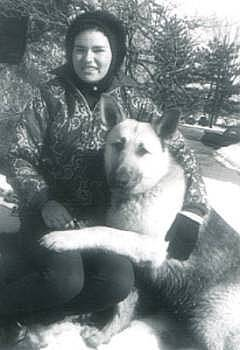 What dog is right for me?
QuestionHi,
my name is Miriam and I am 12 years old.
What dog is right for me?
QuestionHi,
my name is Miriam and I am 12 years old.